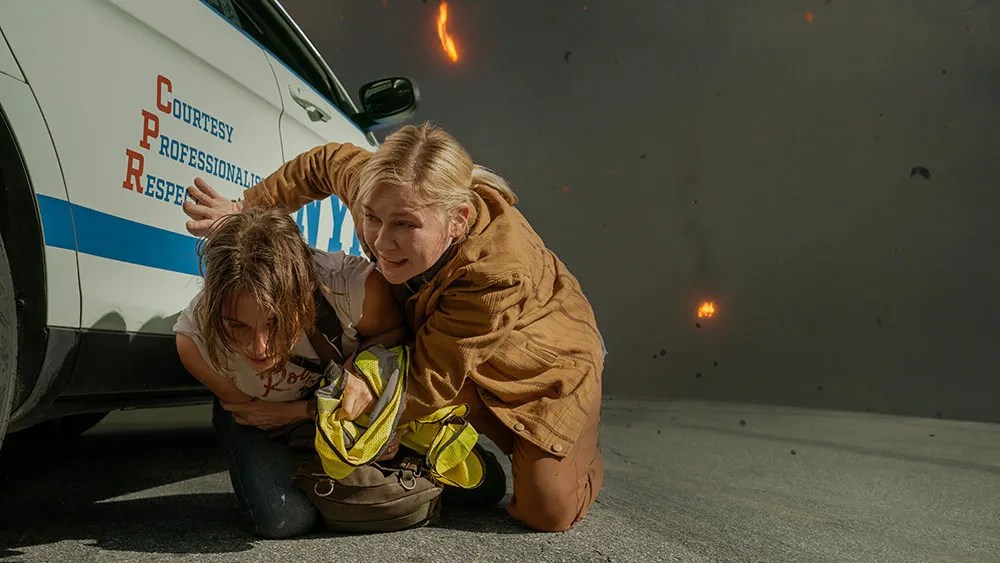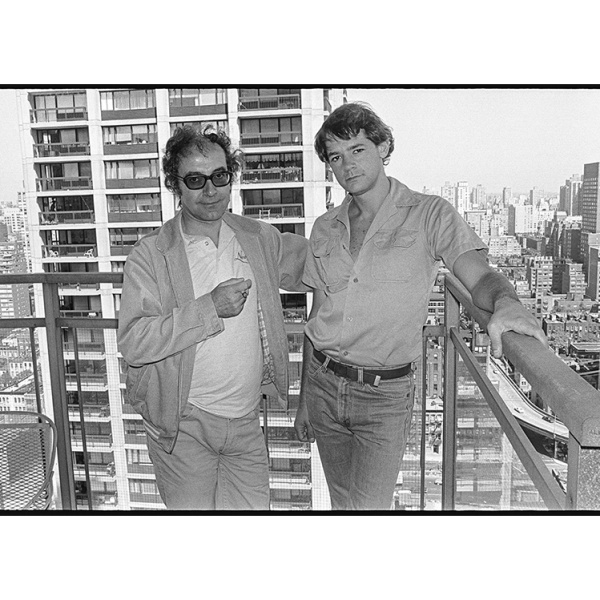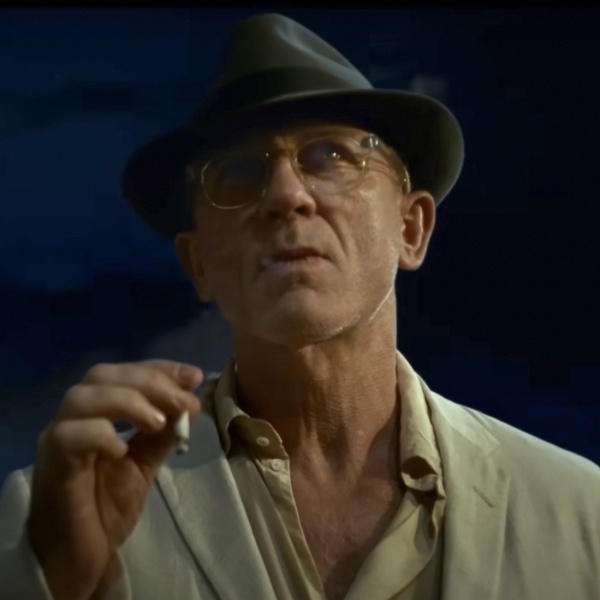The filmmaking style of Alex Garland’s “Civil War” is, in many ways, the negative image of Jonathan Glazer’s “The Zone of Interest.” Both films deal with dehumanization and desensitization to the suffering of others, but where Jonathan Glazer’s film does this with absence and restraint, Garland’s assaults the viewer with nauseating intensity. Shaky camerawork enhances the you-are-there feeling of the film’s combat scenes, and every gunshot — and there are a lot of them — is mixed loud enough to make your ears ring.
It’s like an immersive experience of being in a war zone, which establishes a sort of battlefield camaraderie between the audience and the group of journalists who guide us through the Eastern part of the U.S. in the last days of a devastating civil war. The “Western Forces” of Texas and California and the “Florida Alliance” are closing in on Washington, D.C., and despite the confident tone of his daily radio addresses, the president (Nick Offerman) is expected to surrender any day now. The political dimensions of all of this are never explained, and are frankly irrelevant. It doesn’t matter how these states joined together, or why they seceded. What matters is what the ensuing violence has done to Americans as a whole.
In real life, America is growing crueler and more divided by the day, and the social fabric of the country is disintegrating along with its infrastructure. But “Civil War” isn’t a plea for empathy, or even civility. It simply follows this trend to its logical end point, which is a country where militiamen with automatic weapons shoot strangers on sight and torture their old high school classmates in the burned-out shells of abandoned car washes. Everyone who isn’t directly affected by the violence pretends it isn’t happening, in the name of “stay[ing] out” of politics — a stance that the film condemns more strongly than any.
As the story begins, veteran photojournalist Lee (Kirsten Dunst) pulls reckless rookie Jessie (Cailee Spaeny) out of the path of a bomb that explodes at a water riot in New York City, killing around a dozen people. Following the deafening blast, the soundtrack goes silent as Lee gets up and starts calmly shooting photos of the bloody bodies on the sidewalk. She can’t be emotionally affected by what she sees, or she can’t do her job. But it’s still unsettling to watch her do it.
Jessie will receive a traumatic education in the life of a war correspondent over the next few days, as she tags along with Lee, her colleague Joel (Wagner Moura), and her mentor Sammy (Stephen McKinley Henderson) in their beat-up white press van on what’s technically a road trip — although that term seems a little too pleasant for what’s happening here. They set off on a roundabout route from New York to D.C. that takes them through Pennsylvania and West Virginia and finally down to Charlottesville, the rather on-the-nose front line of a war that’s emboldened white Americans to execute anyone they deem an “other.”
This dynamic plays out in a scene that juxtaposes the warm yellow sunlight and delicate wildflowers of a spring day with a nightmarish tangle of bodies in a mass grave, overseen by a soldier played by Jesse Plemons whose whimsical red plastic sunglasses both contrast with and highlight his casual sadism. The film’s blaring needle drops have a similar, if less focused, effect: Pop music is usually fun, which makes its inclusion here disquieting, because there’s nothing fun about this film. It has some darkly surreal moments, sure. Maybe even a barking, joyless laugh or two. But it’s not fun.
“Civil War” seems to want to have something to say about journalism and witnessing and not looking away from the horrors of the world while also not being numbed by them, but never quite clarifies what its statement actually is. This theme is reflected in the relationship between Lee, a stone-faced professional who speaks in harsh truths and never smiles, and Jessie, an idealistic newcomer who’s often too shaken to take out her camera and document the violence in front of her. These traits will wax and wane within each of them over the course of the story, in ways that make sense in the broadest strokes of character development and theme but fall apart when you start to really dig into the implications of both.
One thing that works in “Civil War” is bringing the devastation of war home: Seeing American cities reduced to bombed-out rubble is shocking, which leads to a sobering reminder that this is already what life is like for many around the world. Today, it’s the people of Gaza. Tomorrow, it’ll be someone else. The framework of this movie may be science fiction, but the chaotic, morally bankrupt reality of war isn’t. It’s a return to form for its director after the misstep of “Men,” a film that’s grim and harrowing by design. The question is, is the emptiness that sets in once the shock has worn off intentional as well?
Grade: B
“Civil War” premiered at SXSW 2024. A24 will release it in theaters on Friday, April 12.





